What's the right age for children to start chores? Psychologists reveal how to help little ones build lifelong task confidence
Dishing out chores can have benefits for the whole family, experts say

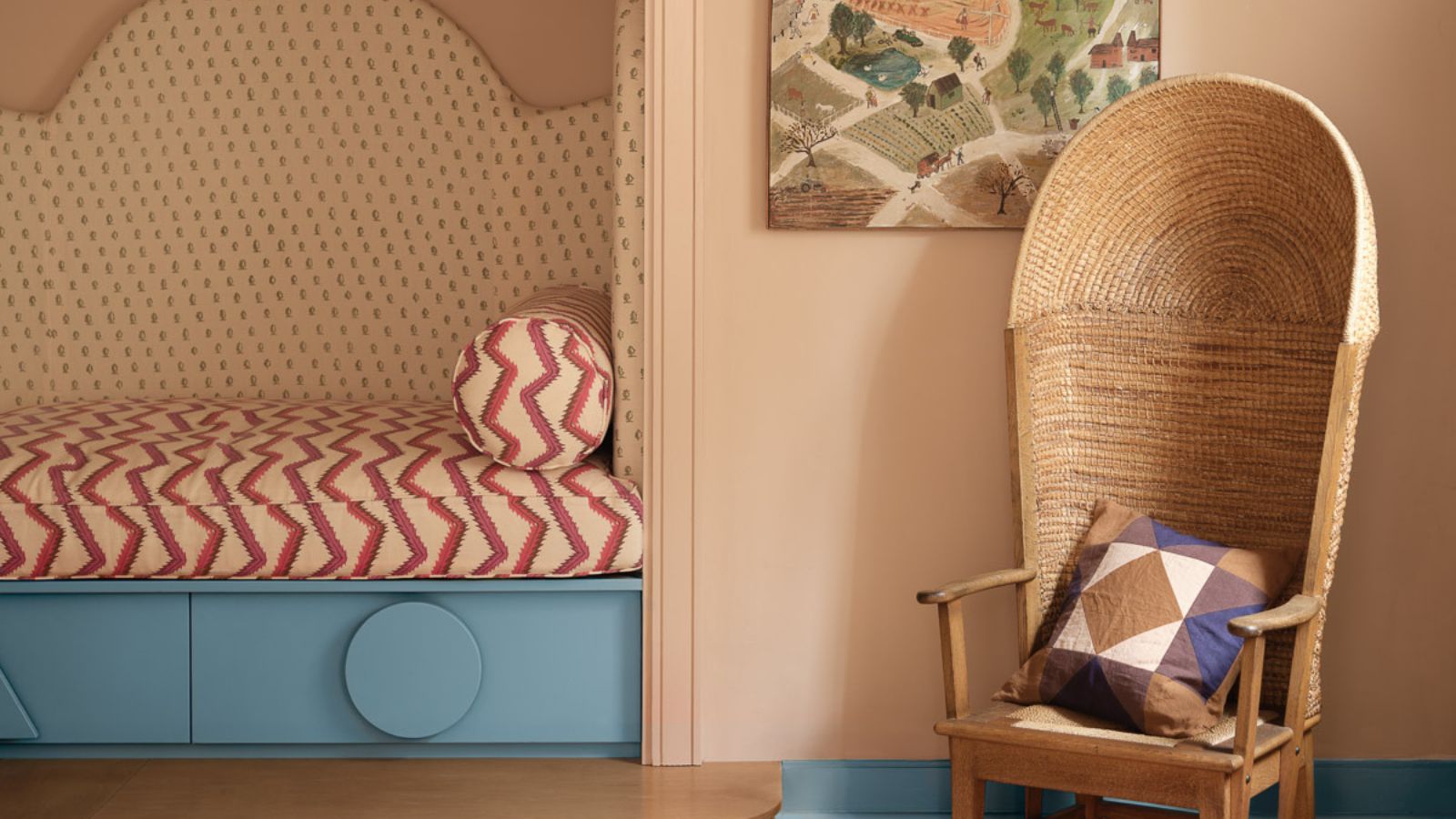
If you’re a parent, you may be wondering ‘What’s the right age for children to start chores?’ Experts agree that two or three is the perfect age for children to begin.
According to our psychology and parenting pros, introducing chores from this young age can have a wealth of benefits for the whole household, but especially helps teach children essential life skills and age-appriopriate responsibility.
Here's when, why, and how you should start introducing chores to your children. We've also included cleaning tips and a list of chores to put in place for each age, to help create a home the whole family is proud of without overwhelming the little ones in your home.
When should kids start chores at home?
'Kids could start doing chores as early as two years old,' says parenting expert Esther Wojcicki, author of How to Raise Successful People and founder of the recently launched Parenting TRICK app.
'They can help around the house, they can pick up their toys, they can help wash things, you'd be surprised how well they're able to do chores. They're especially able to feed pets, and that can be dogs, cats, or fish or even birds.'
It's easy to leave all the chores to the grown ups, but experts agree getting the kids involved bring benefits for all. Motivating your family to clean and encouraging your family to declutter can help you keep a much tidier home, prevent burnout, and stop you from becoming overwhelmed.
Academic coach and school psychologist Jeannine Jannot – author of The Disintegrating Student: Struggling But Smart, Falling Apart, and How To Turn It Around – agrees.
Design expertise in your inbox – from inspiring decorating ideas and beautiful celebrity homes to practical gardening advice and shopping round-ups.
Jeannine says, ‘At this age, chores aren’t about performance or perfection; they’re about participation,’ Jeannine notes. ‘Early involvement builds a sense of competence, responsibility, and belonging in the family.'
All children are different; therefore, some could be ready to start ticking off simple tasks around the house, such as organizing their room when they are two, while others may start helping around the home later.
Which is why Jeannine says, 'There’s no magic age. It’s about matching the task to the developmental level. The earlier kids begin seeing themselves as contributors to the household, the more natural having responsibility will feel when they are older and the stakes are higher.'
What are the benefits of getting kids to do chores?
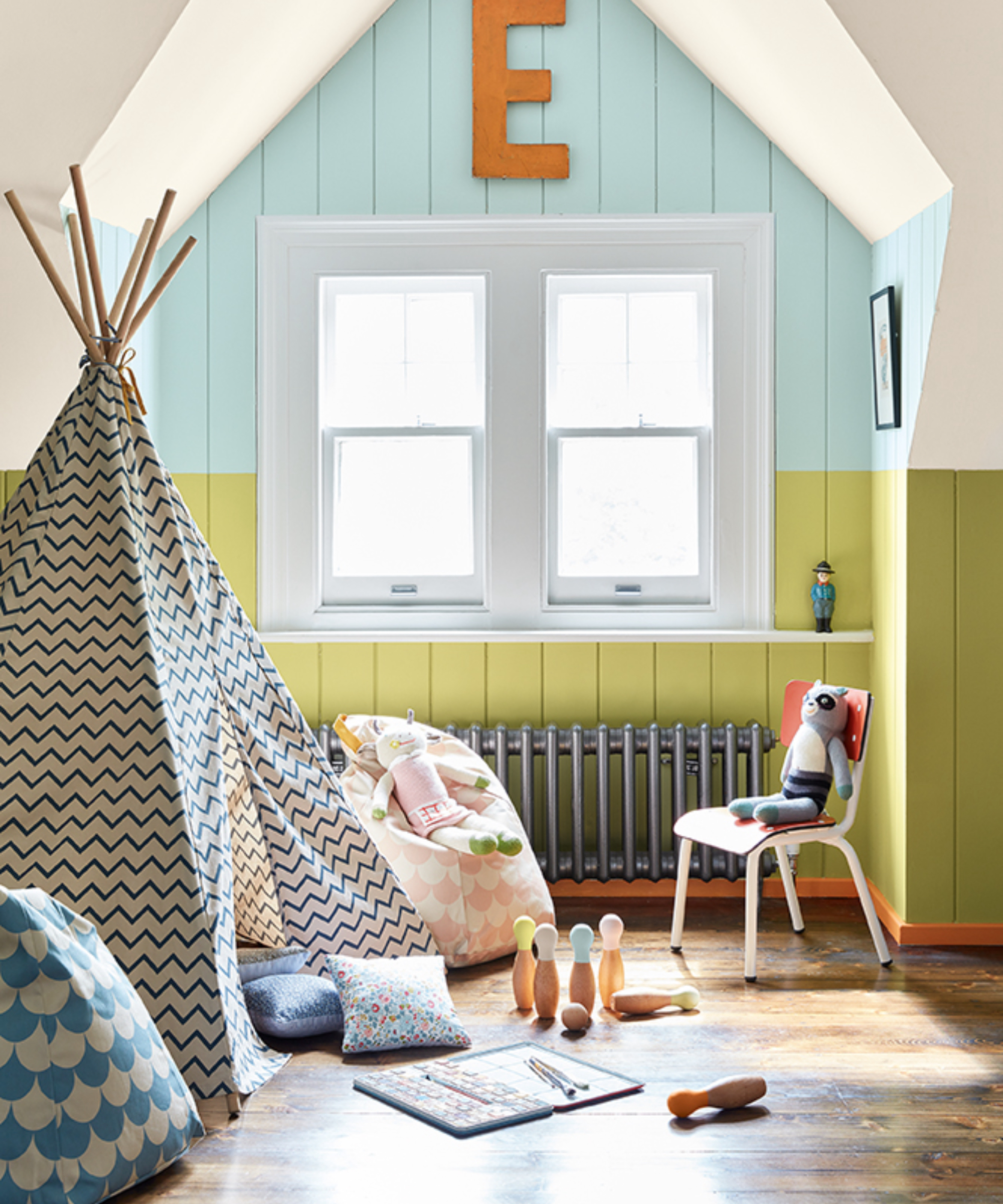
Tasking your child with chores can help share the load and teach your little one invaluable life skills.
Whether they're learning how to keep clothes organized or they are helping to declutter toys, according to experts, there are endless benefits to introducing your child to chores. But the most notable include:
- Chores teach kids life skills: ‘They develop executive function skills, such as planning, organizing, and following through,' Jeannine says. 'For kids who struggle with executive function, motivation, and/or perfectionism, chores are a powerful way to shift the focus from outcomes to effort. They also normalize mistakes and teach that trying and sometimes failing is part of learning.'
- It empowers them: 'Doing chores is very beneficial for kids because it makes them feel like they're part of the team and makes them feel empowered,' Esther says. 'If somebody important in your life asks you to do something difficult, it makes you feel that you can do it if somebody like that asks you.'
- It shares the load: ‘It can benefit you as the parent because it's somebody helping you,' Esther notes. 'You don't want to force them to do things that are demeaning or in some way hurtful to their ego, but it benefits you because you can delegate, and as they get older, they become even more capable.'
- It can help with their confidence: 'If children are given the opportunity to complete achievable tasks, they can thrive with taking initiative as they grow up,' says Jorge Ramirez, professor at Pacific Oaks College. 'This is a strong quality to have because children who have initiative usually also have a strong sense of confidence. Children with agency, confidence, and initiative show more respect for others. This is an important element as children develop social and emotional awareness in the early years.'
Excluding children from household chores is one of the things people with tidy homes never do. In their early development, having a small tidying or cleaning task, such as putting toys in a basket or using a damp cloth to wipe a table, helps them build great habits.
Pitfalls to avoid when introducing chores
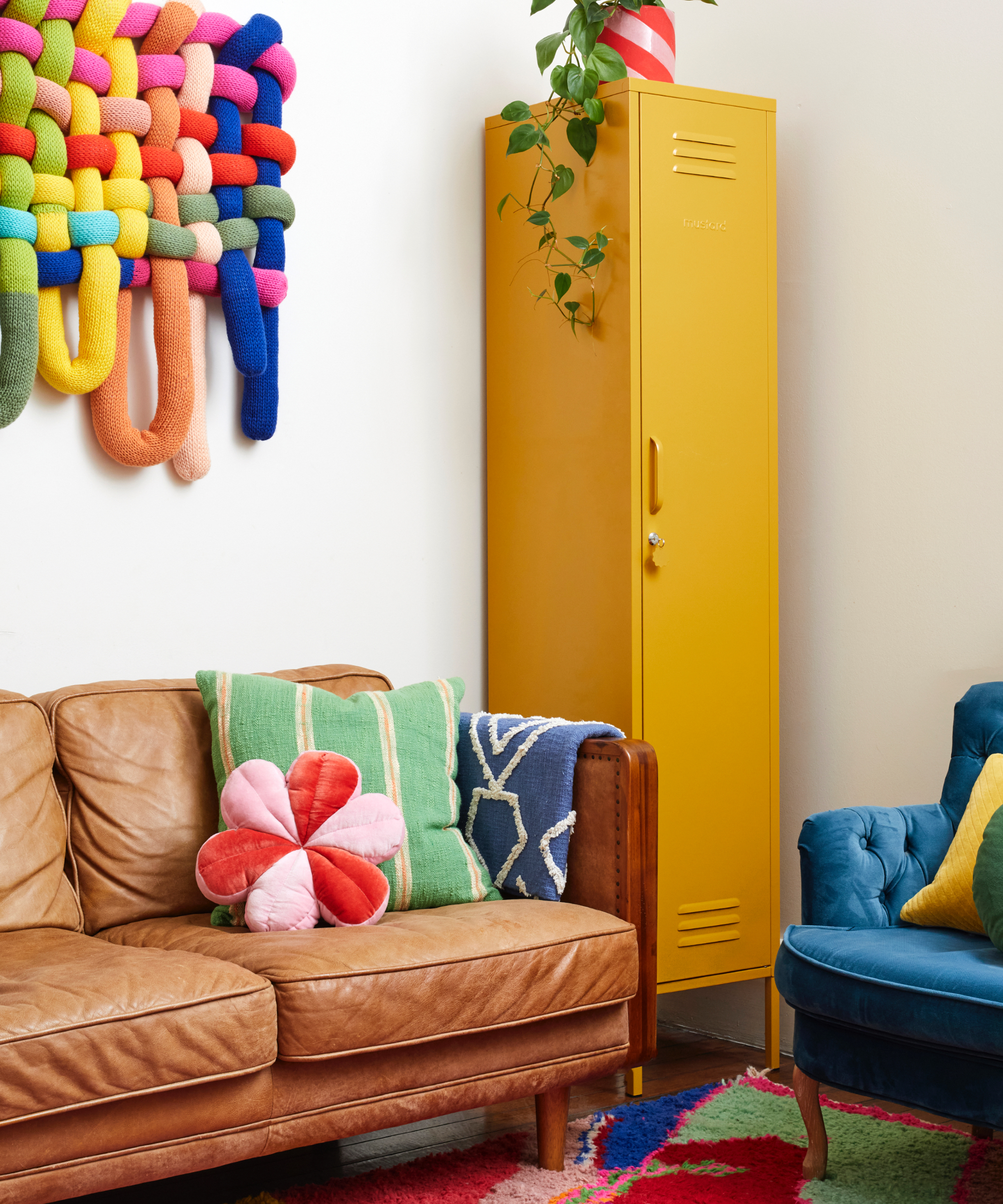
Whilst it’s all well and good to establish some chores for kids, there is a right (and wrong) way to go about it.
For starters, it's a wise idea to learn how to introduce children to chores. Doing so in a positive light can help inspire a helpful, can-do attitude. Whereas when done negatively, chores can be met with apprehension and resentment.
‘If chores are introduced with criticism, control, or inconsistent expectations, kids may resist, shut down, or feel incapable,’ Jeannine explains. ‘But when done right, chores become a space to build confidence and self-esteem, not tear it down.’
Jorge says you should also avoid getting into power struggles. 'Instead of getting into a back-and-forth tug-of-war, approach it with grace and boundaries,' he says.
'Provide specific, realistic completion times with precise instructions. For example: Before your friends come to visit you this afternoon, please have your bed tidy, put your dirty clothes in the laundry room, and have enough walking space to get around the room.
'Children will get creative and find the easiest way to complete the task, which is why having grace is key,' Jorge adds.
It probably goes without saying, but you should also never encourage little hands to engage in dangerous chores. For example, ‘Don't ask them to clean things that are toxic or do work that would in some way hurt them or hurt their health,’ Esther warns.
Cleaning with non-toxic essentials will make this easier and less worrying for all.
The chores to teach your kids
2-4 years old
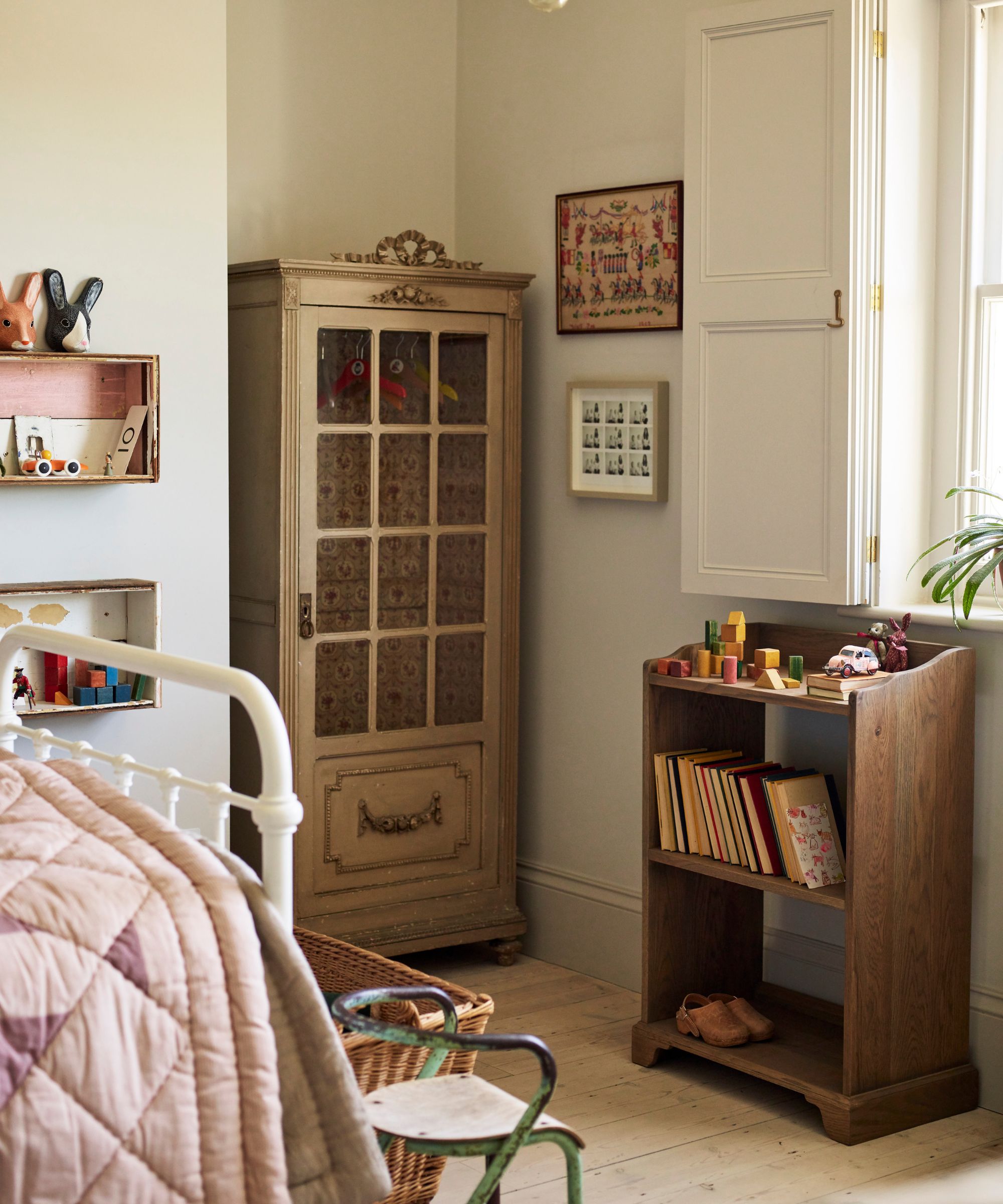
Chores should be assigned depending on a child's age and developmental level.
Esther says basic chores are the best thing you can teach this age group and you could start by encouraging them to focus on personal responsibility and micro-tidying tasks. This includes:
- Setting the table
- Making their bed. This can be as simple as straightening their pillow and pulling their cover up
- Clearing away some things that have been misplaced
- Sorting the laundry
- Washing fruit when you bring it home from the store
- Straightening up their toys
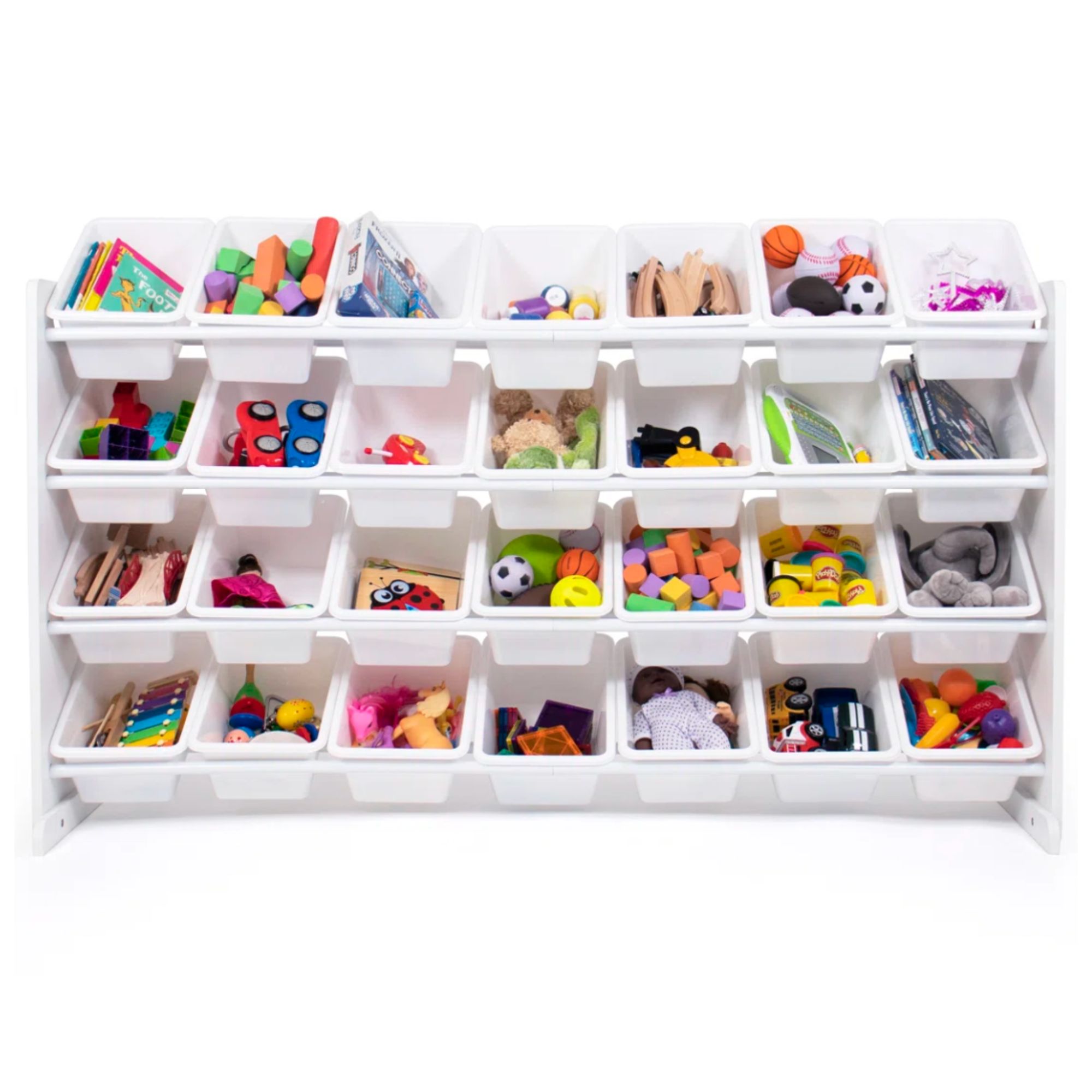
Keep the chaos under control with this organizer, which can make organizing toys effortless. With 28 storage bins, all made from phthalate-free plastic, the open design makes finding (and putting away) toys easier than before.
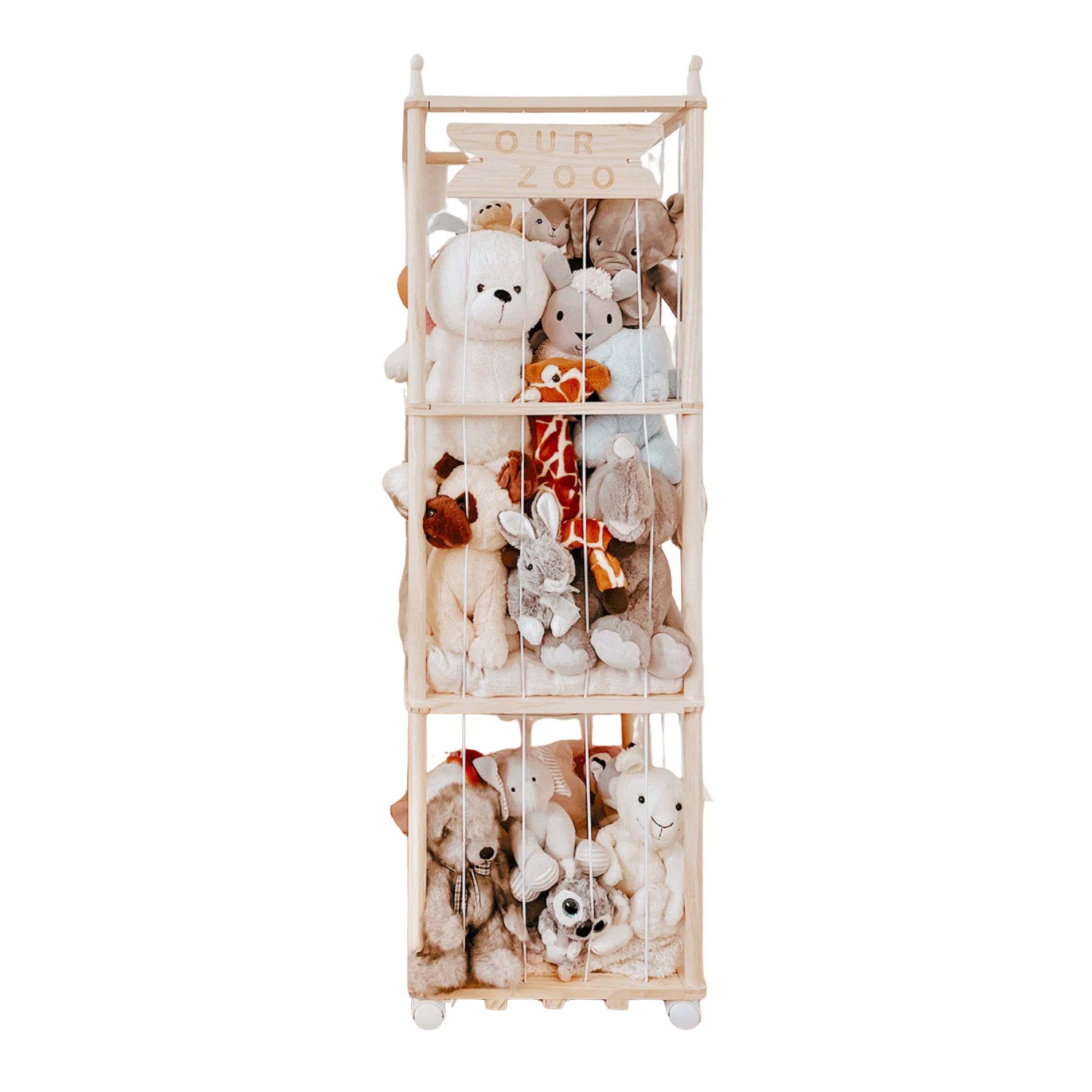
Long gone are the days of storing stuff animals on their bed. This standing stuffed animal storage organizer comes with specially designed elastic bands that allow toddlers to securely return and retrieve toys independently.
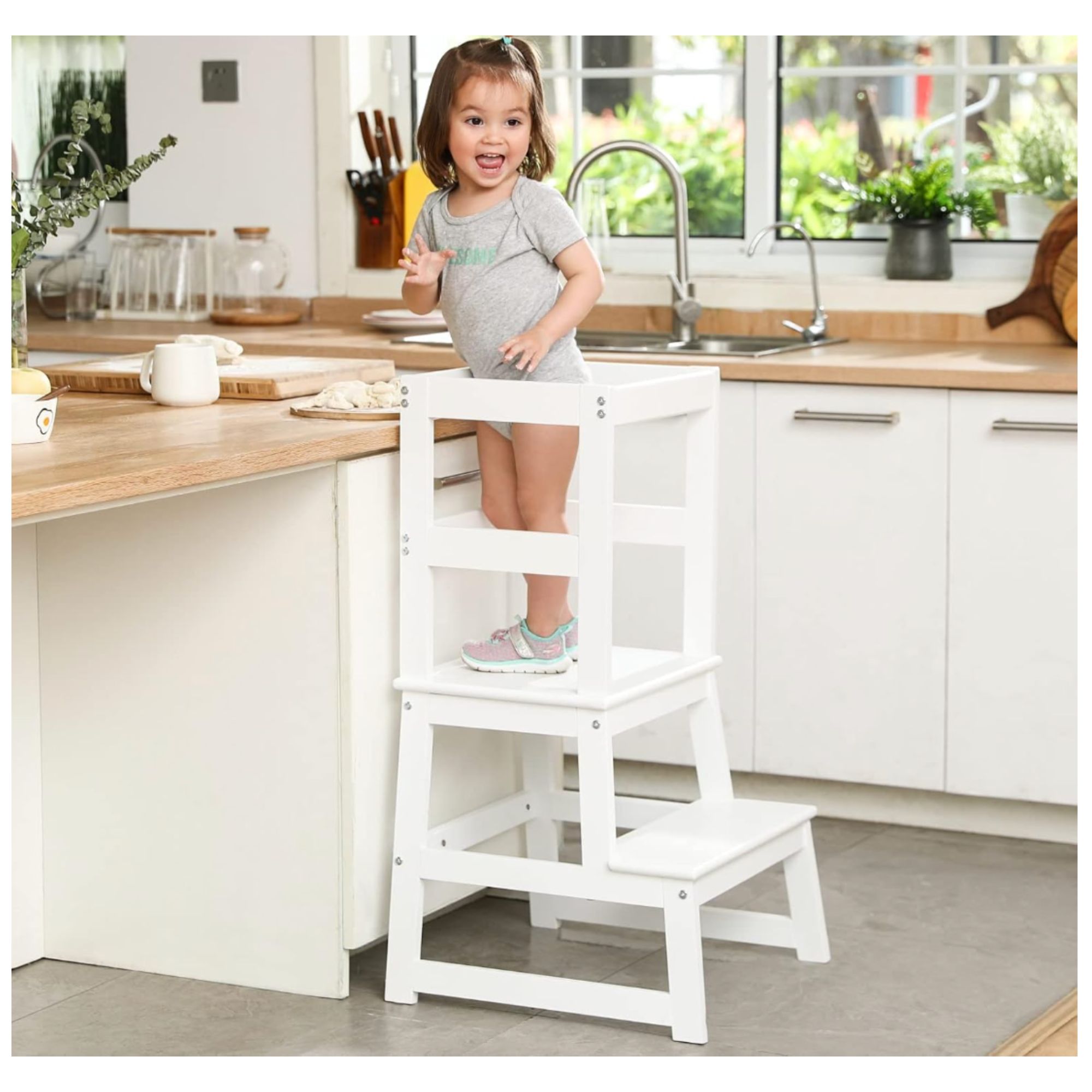
Suitable from 18 months to 36 months, this step stool can help encourage your little one to engage in independent participation in housework. Whether they're watching what you're doing, washing vegetables, or sorting the laundry, this stepper can help little hands join in safely.
5-8 years old
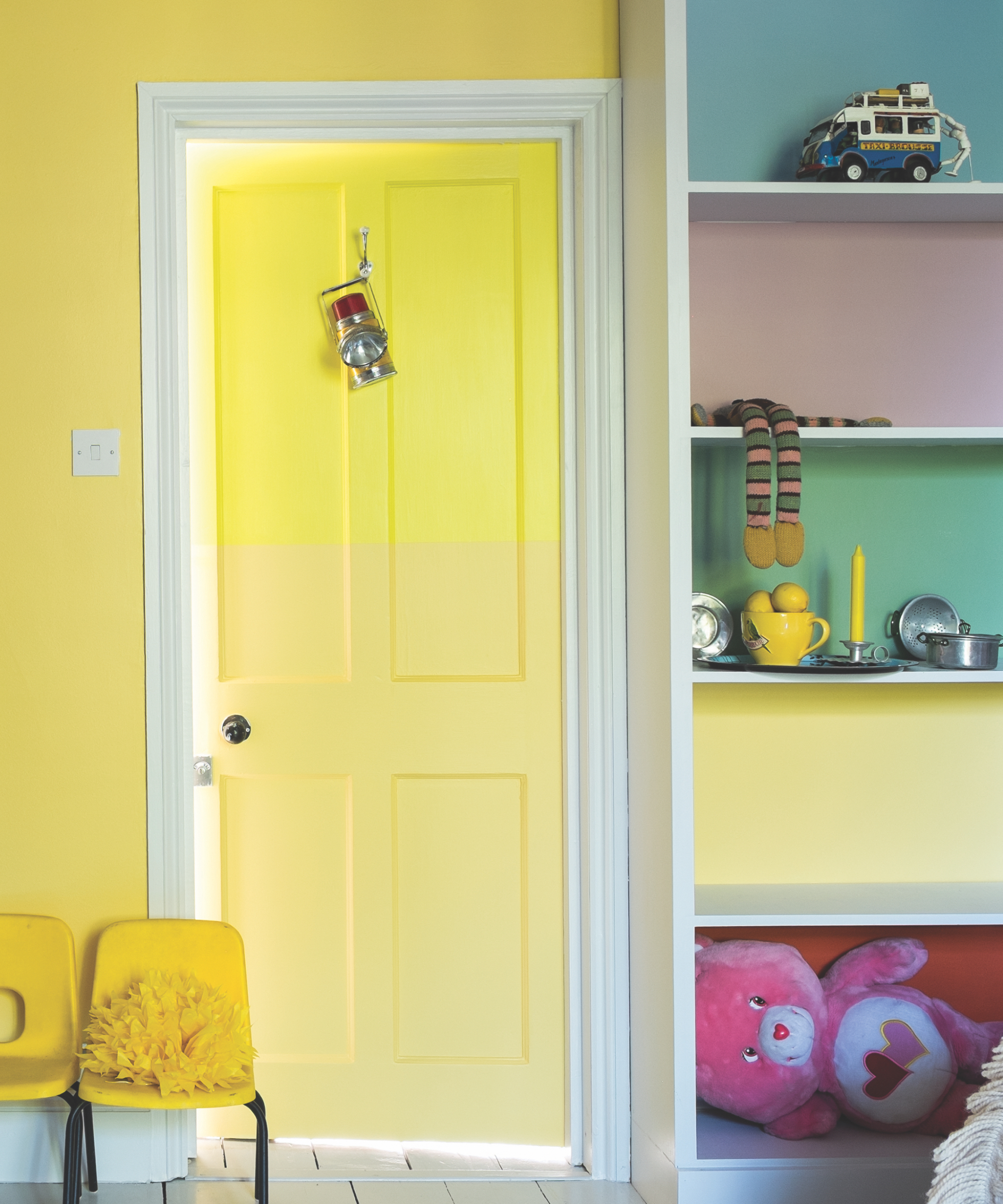
At this age, kids become more independent so can take on more tasks around the home.
As toddlers become children, it's time to add in more realistic and developmentally appropriate tasks.
'For example, now that they have a sense of tidying up their bed, let’s increase this tidiness to the whole room, including the closet, and maybe even the fridge,' Jorge says.
Other chores Esther recommends include:
- Helping to clean the dishes
- Making a simple dessert
- Helping to pack their suitcase when going on a trip
- Watering the plants in the garden
- Setting up their play date games
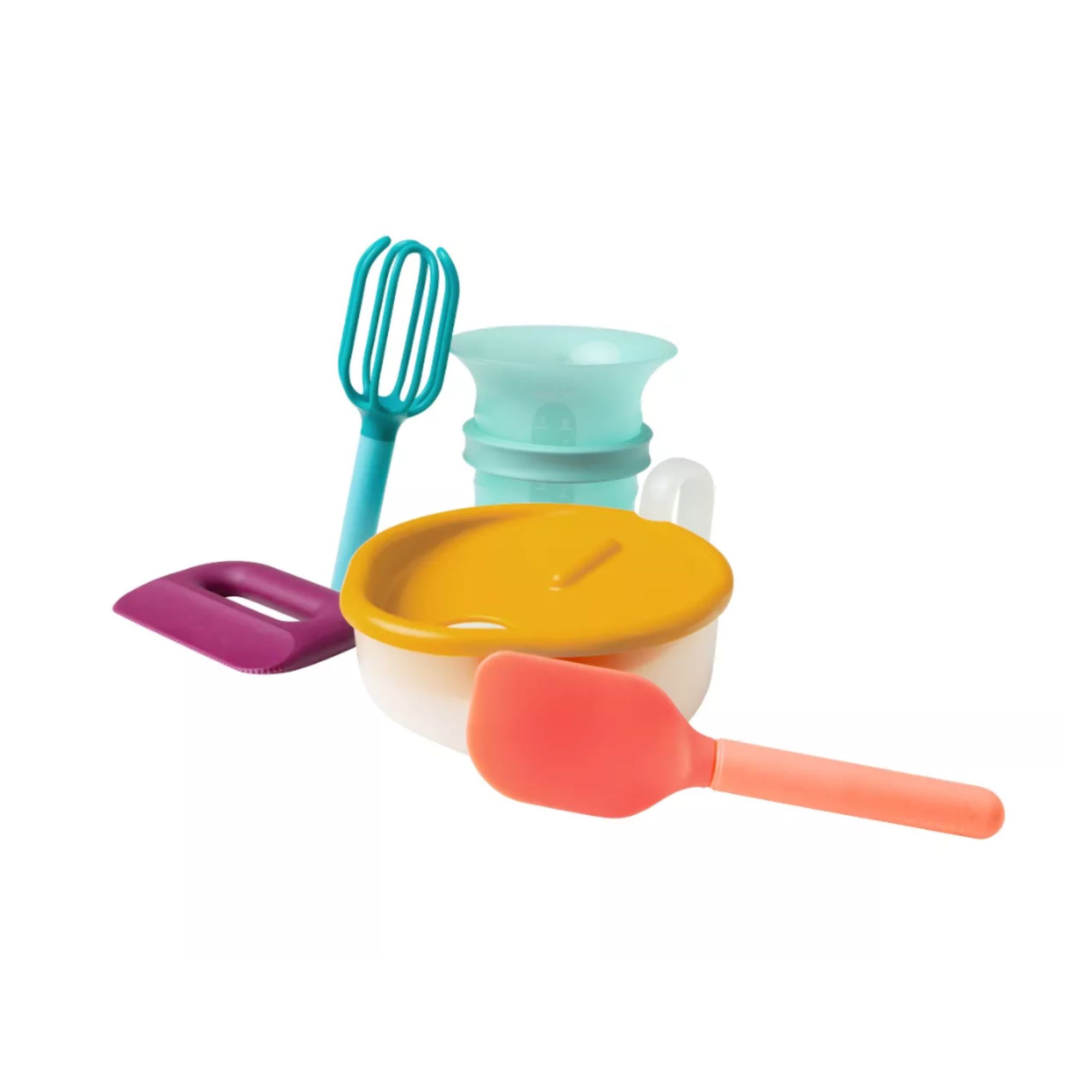
Encourage your sous chef to get into the kitchen with these perfectly-sized utensils that come with kid-proof features. For example, along with a whisk, spatula and chopper, there's a measuring cup with a funnel top that helps catch overflow and an egg cracker that lets eggs slide into the cup – minus the shell.
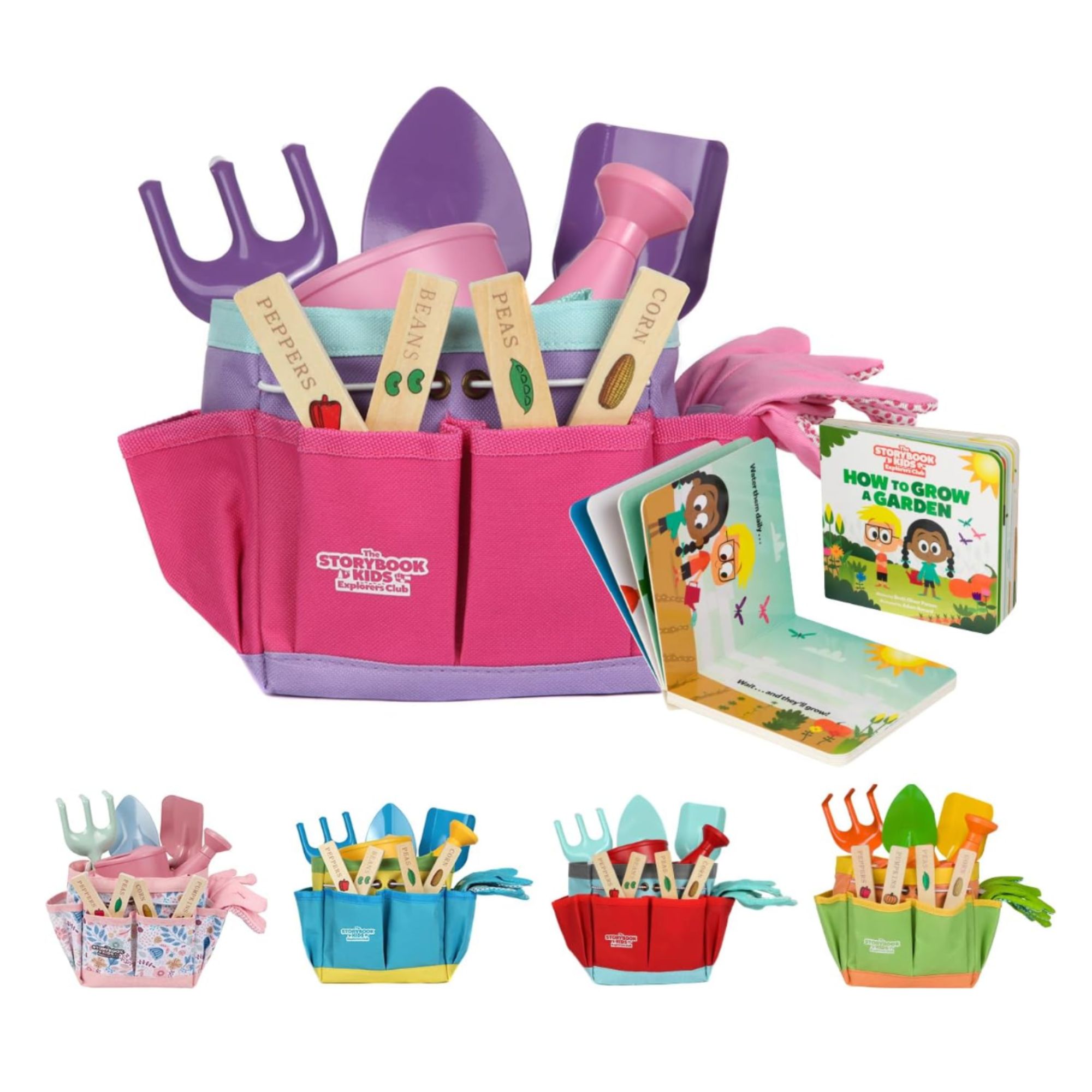
Help them tend to plants with tools that have rounded, child-friendly edges. They can protect their hands with gloves, water the garden with a watering can, and learn about plant life cycles thanks to the fun and educational book, and more.
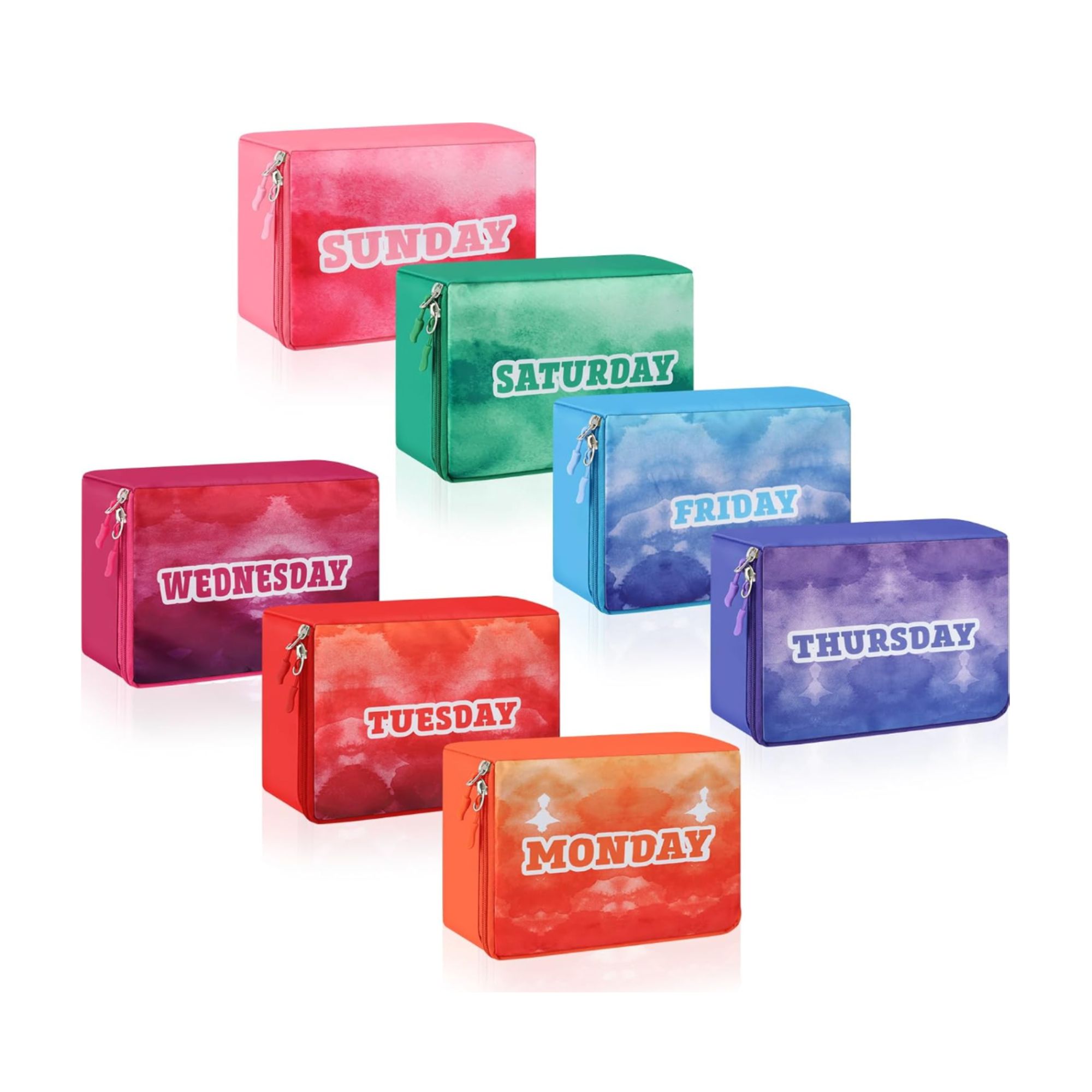
Got a trip planned? Help them pick out their outfits and fold them away neatly with these packing cubes that are printed with Monday to Sunday markings to help make getting organized simple.
8-12 years old

Whether it's tidying a whole room, helping their siblings do so or cooking, this age group can turn their hand to most chores.
The older the child, the more they can help around the house.
'The child now has about 7 – 11 years of experience of putting things away, a sense of tidiness, and knowing that they have chores to complete,' Jorge explains.
Therefore, Esther recommends asking children to:
- Help cook and clean the house
- Help go shopping
- They can take care of younger siblings
- They can make beds and do the necessary daily routines specific to them
Punteha van Terheyden, Head of Solved, has an eight-year-old. She says, 'My daughter is entirely adept at completing her regular chores, but sometimes forgets to do them. We have a little list pinned on her closet to jog her memory to feed her fish, turn off her night light, make her bed, and open her shutters every morning.'
A mountable children's checklist from Amazon has been very handy, Punteha says.
'She also helps add essentials we've run out of at home and she's spotted to our magnetic grocery board on our fridge,' Punteha adds.
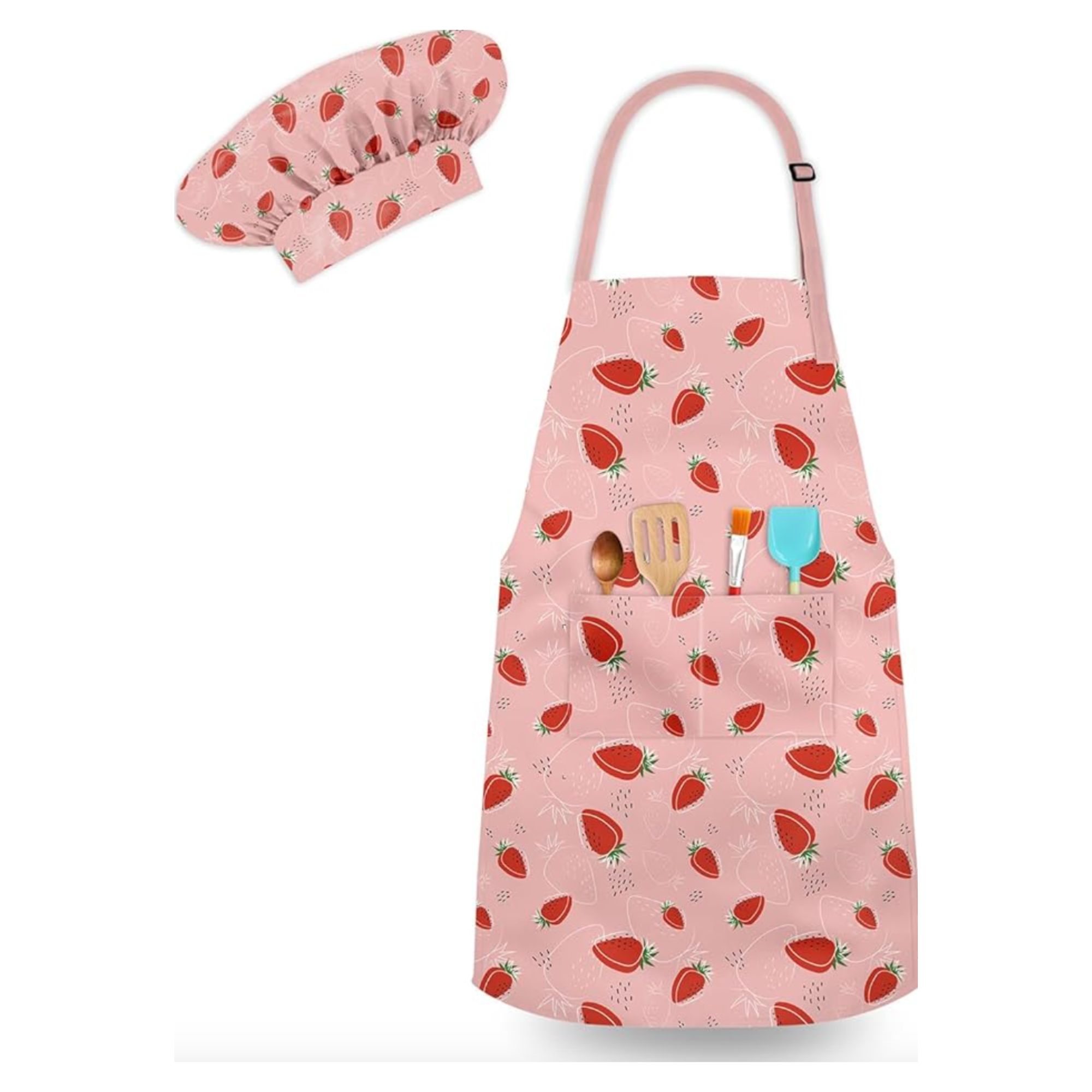
Encourage their love for getting creative in the kitchen with this kids' apron and chef hat set. Coming with two front pockets and a neck adjustment strap, once they have finished baking their creations, they can pop the apron in the wash so it's clean for their next shift.
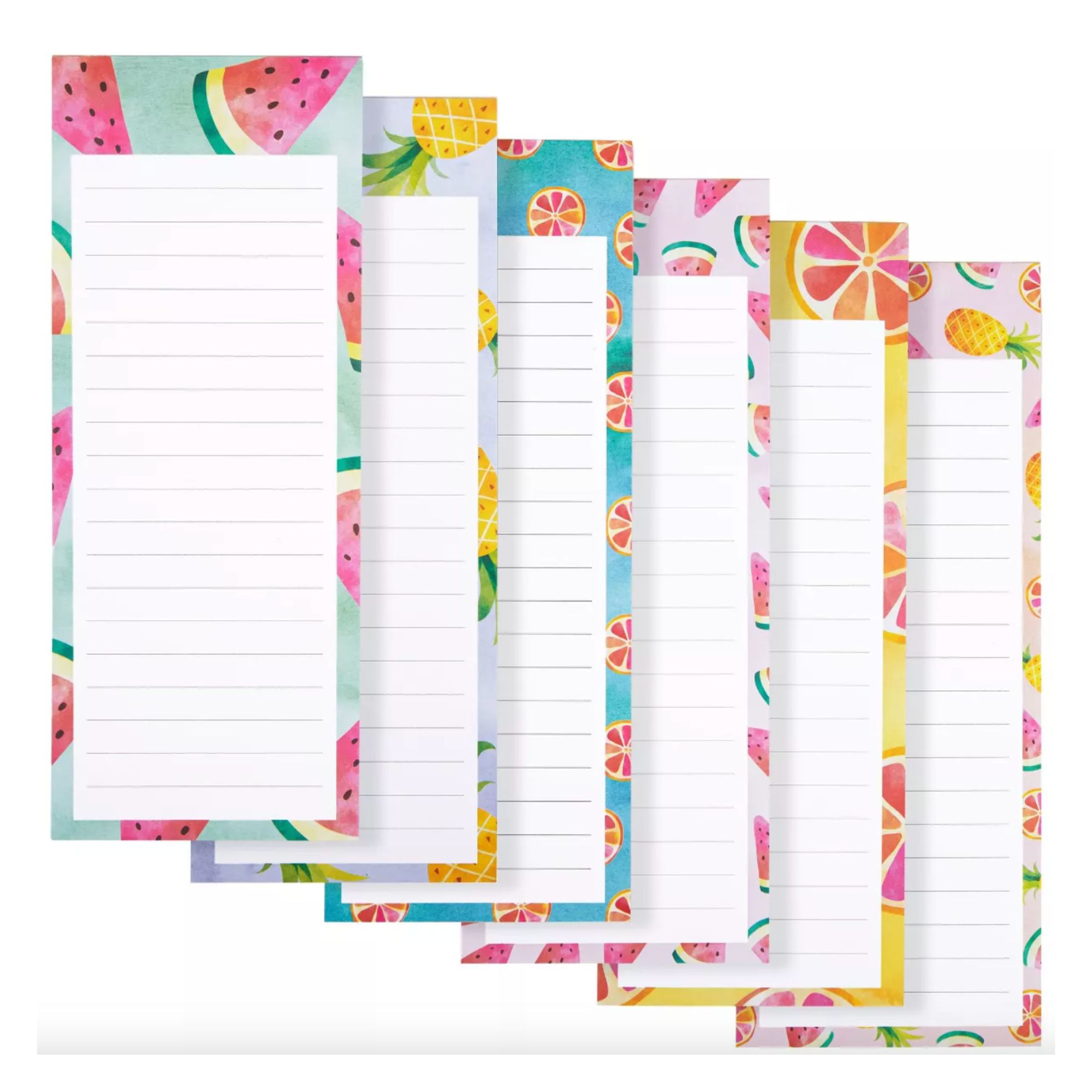
Heading to the shops? Bring your not-so-little-one but get them to write down everything the family needs on these bright and beautiful notepads, first.
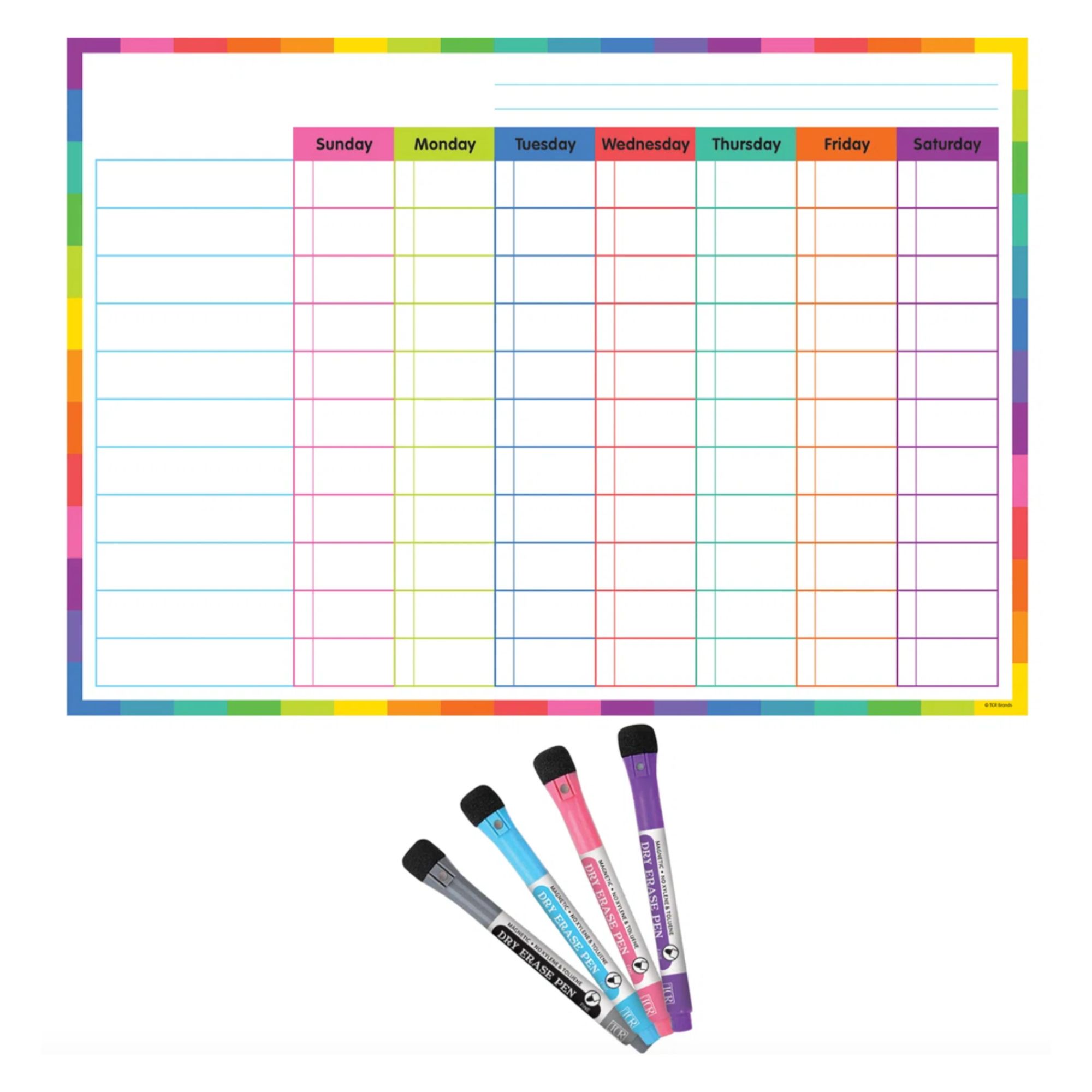
Keep the whole family's chores in check with a large erasable chart. Including four dry-erase pens in black, blue, pink, and purple, place this on your refrigerator for everyone to see.
Meet the experts

Dr. Jeannine Jannot has a master's degree in school psychology and is an academic coach and the author of The Disintegrating Student: Struggling But Smart, Falling Apart, and How To Turn It Around. She has more than 25 years of experience working with children, teens, and young adults in both public and private school settings.

Jorge is a professor in the Department of Early Childhood Education at Pacific Oaks College and has more than 25 years of experience working with various early childhood education (ECE) programs and child development centers.

Esther is a globally renowned parenting educator and author who is perhaps best known for pioneering the Media Arts Program at Palo Alto High School, where she has mentored thousands of students, including Silicon Valley’s top innovators. She recently launched the Parenting TRICK app, which delivers personalized support to help parents navigate everyday challenges.
Looking for more ways to keep a tidy family home? Learn how to organize a home with kids in mind or discover the one thing the most organized families have in common.

Rebecca was a senior digital writer at Hearst Magazines before leaving her role to go freelance in 2019. Since then, she has written extensive homes and lifestyle content for leading brands including Homes & Gardens, Livingetc, Real Homes, Good Housekeeping, Kitchens, Bedrooms & Bathrooms and House Beautiful. When she's not writing, Becks is trying out the latest viral cleaning and organizing hacks to see if they actually work, decluttering her home (because less is more this spring), or color-coding her bookshelf.